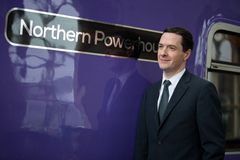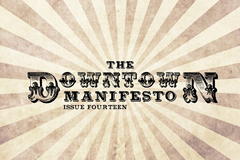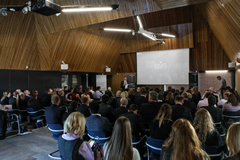It is very easy for us folk ‘up North’ to get carried away with the notion that re-balancing the UK economy means closing the North-South divide, with Manchester in the vanguard of securing the type of devolution deal that will hopefully be rolled out across the region, parochial politicians permitting.
However, the idea of ‘powerhouses’ and big, influential Combined Authorities, is not simply exercising the minds of Manchester, Liverpool, Leeds, Newcastle et al. Everywhere located this side of the Watford gap are beating a track to Whitehall and shouting ‘Me too.’
No more so is this the case than the city that in modern times had managed to claim, and lose, the title of undisputed ‘second city’ – Birmingham.
Aesthetically, it is not the easiest on the eye, Brum. Indeed, you could go as far as to say that she is as ugly as she has ever been, as the city currently boasts a backdrop that could be happily used by Hollywood film makers for movies set in a war torn location of the Middle East.
However, there is good, and positive, reason for that. Birmingham is experiencing a long overdue facelift. A wholesale regeneration of the place is happening that will create a £2 billion plus ‘paradise’ project that cannot help but breathe new life into the economy, the night time economy in particular.
Additionally, the investment that has been confirmed by HSBC, the crucial role Birmingham will have in delivering HS2 and the fact that its city region takes in a population of 4 million people signals that this is a sleeping giant that has well and truly been awoken.
Of course, like all modern UK cities, it faces challenges, none more so than the crushing austerity programme imposed on the city council by central government, that has seen exciting initiatives such as an iconic new library and community facility turned into an albatross around civic leader’s necks.
At some point I hope the chancellor recognises that great cities can only continue to thrive and grow if they are allowed to maintain a level of service provision and activity that is relevant to the 21st rather than the 19th Century. But more of that post- Osborne budget statement.
Nevertheless, despite these challenges, Birmingham has so much else going for it that it is difficult to imagine that it is not approaching a period of huge renaissance.
I have spent the past eighteen months going down and up the M6 meeting a good number of Brummie businesses, entrepreneurs and decision makers to know that these guys and gals mean business.
Talk about energy – it is incredible. Commitment – in abundance. Determination – as Ed might say – hell yeah!
Coupled with this vibrant business community, a pragmatic public sector leadership that is keen to engage with the new up and coming business leaders of the future, whilst maintaining a strong relationship with its traditional commercial sector, makes Birmingham more than a little bit interesting.
All of this leads me to one conclusion. A city with so much attitude needs a business club to match. Downtown Birmingham in Business? We launch there in September, and I can’t wait.







